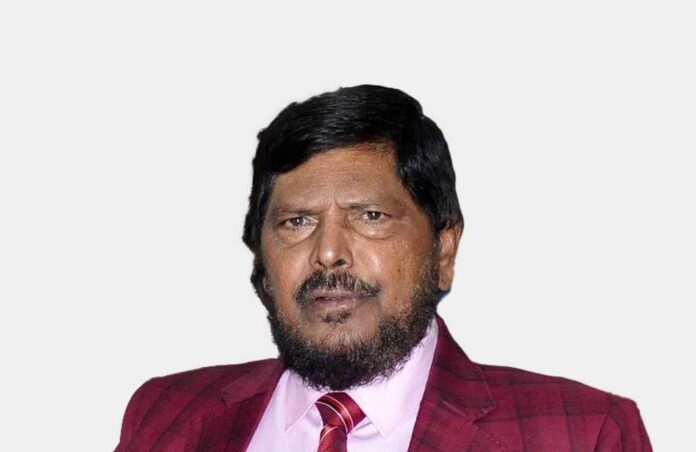(TibetanReview.net, Jan02’22) – In what amounts to rejecting China’s contention that there is no Tibet issue remaining to be resolved except one of “separatism”, India’s Minister of Social Justice and Empowerment Mr Ramdas Athawale has said Jan 1 that the Tibet issue must be resolved and Tibetans should not suffer.
“China may have some objections but I feel that the Tibet issue must be resolved. Dalai Lama came to India in 1949 and he should get justice. Tibet people should not suffer. Our Foreign Affairs Minister will reply to China’s letter, “the ANI news service Jan quoted Athawale as saying.
Athawale was one of several members of the Indian parliament who attended a reception co-hosted by the Tibetan Parliament on Exile in New Delhi on Dec 22. The occasion was the announcement of the revival of the All-Party Indian Parliamentary Forum for Tibet (APIPFT) which was first established in 1970.
On Dec 30, Political Counsellor Mr Zhou Yongsheng of the Chinese embassy in New Delhi wrote to the members who attended the reception, accusing them of being in breach of India’s recognition of Tibet as part of China.
Calling the ‘Tibetan Government in-exile’ an “out-and-out separatist political group” and “an illegal organization” Zhou told them: “China firmly opposes any anti-China separatist activities conducted by ‘Tibetan independence’ forces in any capacity or name in any country and opposes any forms of contact by officials of any country with them.”
BJD MP Sujeet Kumar, who is the convener of the APIPFT, strongly questioned Zhou for writing directly to him in breach of diplomatic protocols. He also disagreed that Tibet was part of China.
He was quoted as saying: “Personally speaking, I don’t consider Tibet to be a part of China. That is separate because the Government of India’s official policy is different. But this Parliamentary forum on Tibet is to support the cause of Tibetan cultural and religious beliefs, and is between the people of India and the Tibetan government-in-exile. One should not read too much politics into it.”






